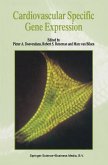With sequencing of the human genome now complete, deciphering the role of gene function in human neurological pathophysiology is a promise that has yet to be realized. More than most diseases, stroke has been keenly studied from a genomic perspective. Studies are numerous and incorporate data on stroke inheritance, chromosomal loci of risk, preclinical models of stroke, and differential gene expression of brain injury, repair, and recovery. The problem is no longer a lack of information but one of interpretation and prioritization of what we do know. The aims of Stroke Genomics: Methods and Reviews are twofold. First, it aims to provide the reader with cutting-edge reviews of clinical and preclinical genomics, written by leading experts in the field. In particular, the authors of certain chapters relate gene expression changes to physiological end points, such as functional imaging paradigms. Thus, a more holistic approach to gene expression is described, one in which molecular biology goes hand in hand with stroke pathophysiology. Second, detailed methods for study of the molecular biology of stroke are (TM) also included. Following the format of the Methods in Molecular Medicine series, these chapters will enable the reader to employ each technique without recourse to other methods texts. In its entirety, this book should provide the reader with the knowledge needed to design, execute, and interpret preclinical and clinical studies of stroke genomics.
From the reviews: "The protocols presented in Stroke Genomics: Methods and Reviews will greatly benefit scientists interested in the molecular biology as well as the genetic and genomic basis of strokes." - Journal of Chemical Neuroanatomy"...very interesting and informative...an attractive and interesting overview of the different aspects of the current stroke research...can be recommended as a source of useful and up-to-date practical and theoretical information on stroke genetics and on stroke associated gene expression." - European Neurology "This book gives the opportunity for experts in the field to explore the practical and experimental applications of genomic and molecular biology research to the treatment of stroke. ... The book also indicates detailed methods for studying the molecular biology of stroke. ... It can be recommended if one is interested in the basic scientific background that underlies central nervous system pathology ... ." (J. V. Byrne, Neuroradiology, Vol. 47, 2005)









